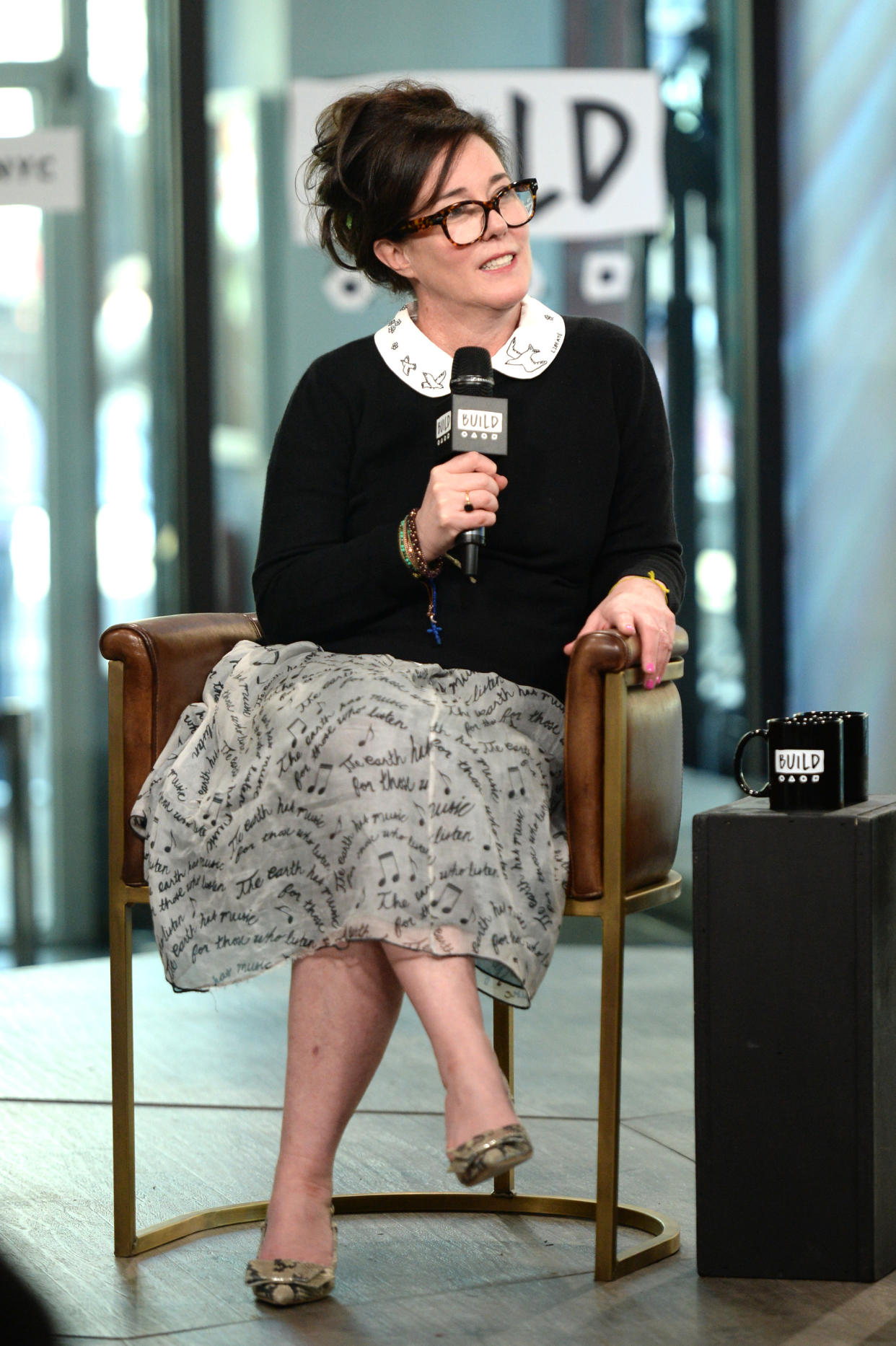Kate Spade's suicide is proof that money and fame can't deter depression

The death of designer Kate Spade by suicide has upended social media, with fans pointing to the myth that success guarantees happiness.
The Associated Press reported that the famous handbag designer was found hanged Tuesday morning in her Park Avenue, New York City, home by a housekeeper, along with a suicide note explaining that her 13-year-old daughter, who was at school at the time, was not at fault. The news outlet also reported that Kate’s husband, Andy Spade, was home at the time of her death.
Many people tweeted their devastation and discredited a common misconception about the origins of suicide.
I am so deeply saddened by the news of Kate Spade’s death. Mental illness is cruel and doesn’t discriminate based on resources or perceived popularity. Be good to yourselves today, friends.
— Laura Turner (@lkoturner) June 5, 2018
Kate Spade committed suicide, this again proves money doesn’t buy happiness. Happiness comes from within, people and material objects are temporary.
— E V A (@Evadivadoll) June 5, 2018
I will never forget the first Kate Spade bag I got for Christmas in college. She was a trailblazer. Her life and death are a reminder that pain doesn’t discriminate. Sending love to her family.
— Jenna Bush Hager (@JennaBushHager) June 5, 2018
Depression does not discriminate and comes without warning. RIP Kate Spade. Love to her family.
National Suicide Prevention Lifeline: 1-800-273-8255
— josh groban (@joshgroban) June 5, 2018
The terrible news about Kate Spade is a reminder that a lot of people are struggling, no matter how perfect their life may look to others. You are not alone. pic.twitter.com/B3qmF0QZ6c
— Julie DiCaro (@JulieDiCaro) June 5, 2018
Sadly both Kate Spade and Avicii are reminders that ‘success’ does not equal happiness. So heartbreaking.
— Em Sheldon (@emshelx) June 5, 2018
Shocked to hear of Kate Spade’s passing. She was a pioneer for women’s fashion, and to the outside world, a success in every way. But mental illness does not discriminate. No matter who you are. If you ever feel alone, know there is ALWAYS help. Love you.
— Jessica Vosk (@JessicaVosk) June 5, 2018
Kate Spade is another example of how financial stability and fame are meaningless when it comes to mental health. Happiness is not limited to your bank account or your success. You could have the whole world and still have nothing at all.
— J o s h (@Boomgoesjoshie) June 5, 2018
Some people are just completely tormented despite meds & friends & support. Some simply cannot deal & it is part of their DNA. Some can cope. It’s truly tragic to imagine the pain taking you there. https://t.co/JOqKYYQK3z
— Bethenny Frankel (@Bethenny) June 5, 2018
As reported in a press release from the American Association of Suicidology, nearly 30 women die by suicide each day in the U.S., and more than 10,200 women die by suicide annually. Middle-aged women, like Spade, are especially prone to suicide.
“It would not be fair to speculate why Kate Spade died by suicide, but it’s clear that she was struggling — the stressors of parenthood, issues that arise in middle age, or professional roadblocks are possibilities,” president Julie Cerel tells Yahoo Lifestyle.
It’s uncertain whether Spade struggled with depression. However, according to Cerel, 90 percent of suicide victims have some type of psychiatric disorder. “That conclusion is often determined through psychological autopsies in which loved ones are interviewed about the deceased person,” she explains. “People may list depression as something they overlooked, but the reality is people who die by suicide don’t necessarily have depression.”
She adds, “In fact, people with eating disorders and schizophrenia are likelier to end their lives.”
The reason for this is because in most cases, suicide isn’t an impulsive decision. Cerel says there is good reason to check in on anyone who may be struggling, even those with professional success and wealth, like Spade. “Depression may be a combination of one’s life experience, skills such as coping mechanism, and biology — we just don’t know,” says Cerel.
As Todd Essig, a New York-based psychologist, told Forbes in 2015, “Many C-suite executives are prone to depression, despite their success — maybe even because of it.” The outlet also reported that factors such as intense pressure, 24-hour work schedules, a shift in one’s identity, and a low self-esteem from setting high standards can all contribute to this.
If you are in crisis, please call the National Suicide Prevention Lifeline at 1-800-273-TALK (8255) or contact the Crisis Text Line by texting TALK to 741-741.
Read more from Yahoo Lifestyle:
Willow Smith tells Jada Pinkett Smith she was cutting herself after finding fame
What is pancreatitis? Popular DJ Avicii, 28, dies after years of health problems
Avicii died of suicide — what causes a person to fatally injure oneself
Follow us on Instagram, Facebook, and Twitter for nonstop inspiration delivered fresh to your feed, every day.


